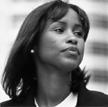 |
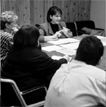 |
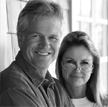 |
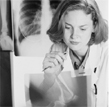 |
 |
 |
 |
 |
All Is Not Well:
Citizens Speak Out About Health Care in Daviess County
A report on 52 community health forums
September 2002
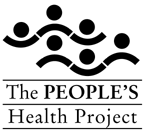
Exhibits Survey results Acknowledgements |
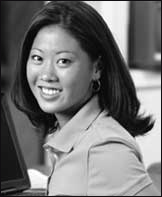 |
 |
|
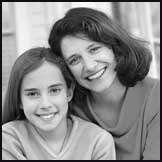 |
The People's Health Project involved the citizens of Owensboro-Daviess County, Kentucky, in discussions of health care access at 52 moderated forums in 2001-02. The forums were structured to cover seven issues that were among the greatest concerns local citizens expressed in a University of Kentucky Health Needs Assessment released in August 2000:
Forum moderators introduced participants to the findings from the health needs assessment and other relevant data. Through two-hour discussions and follow-up questionnaires, they were asked to share impressions and personal experiences, and to select or provide their own ideas for community strategies.
Back to top (Table of Contents)
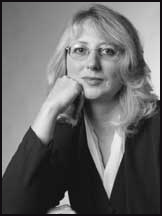 |
The dominant theme of the forum discussions was this: Many Daviess Countians, particularly those with low incomes, have a hard time coping with medical conditions and bills, and many have significant difficulties getting and affording the health care they need. Here is what forum participants said regarding the seven access issues targeted by the People's Health Project: |
1. Health
care costs, including prescription drug costs, are too high.
High costs were the overarching concern of forum participants. Cost affects
everyone, but women more directly than men, according to UK's analysis of surveys
filled out by forum participants. Citizens believe costs are unjustly high,
and that the reasons include:
2. Everyone
needs a doctor.
Citizens agreed that primary care is critical for everyone. This is important
for prevention and early diagnosis, which also keeps health costs low. Many
people are frustrated in finding a doctor, they said — particularly those who
may be unable to pay. Citizens are also concerned that there is a shortage of
primary care doctors, which means that even those with a regular doctor don't
get to spend enough time with him or her. Citizens supported a systematic effort
to connect patients with doctors, but when that falls short, they supported
more effective recruitment, expanded clinics and services.
3. Let's
fill the gaps.
Many stories were shared about people falling through the cracks of our local
health care delivery system. These people included the insured, uninsured, underinsured,
people with chronic problems and those who need help navigating the system.
Citizens support a better way — be it a clearinghouse, hotline or ombudsman.
4. The
health care system could be more consumer-friendly.
Participants said obtaining proper health care is often complicated by transportation
problems, work schedules and paperwork. They supported steps to help people
overcome these barriers.
5. Respect
is important.
Many citizens described feeling embarrassed, ashamed and mistreated when accessing
the health care system. Yet they said they know that respect works both ways
and that patients can be rude, unfair and cavalier about appointments. They
said they want everyone — those who can pay and those who cannot — to be treated
with care and consideration.
6. Funds
are already available to fix many problems.
Citizens were more likely to support steps that will not increase taxes or fees.
With the huge sums spent on health care, and with the local hospital sustaining
a substantial surplus, they said a better system should be possible with funds
that are available already. They said they prefer that their local health care
providers focus more on collaboration and access issues.
Other themes
Participants felt so strongly about some issues that they often brought them up even though the issues were not included in the discussion booklets used at the forums. These included:
1. Lack
of competition
A theme expressed in nearly every forum was that our community has only one
hospital, few insurance choices and not enough providers. Citizens expressed
these concerns over and over.
2. Abuse
of the emergency room
Citizens expressed frustration about the inappropriate use of the Owensboro
Mercy Health System (OMHS) Emergency Department (ER). They were concerned that
the poor and uninsured have nowhere else to go, but also that people abuse the
free services there, resulting in higher costs for everyone. (OMHS recently
funded a full-time physician for the McAuley Clinic, which serves the uninsured.)
3. Poor
health habits
Citizens said they are frustrated with those who are not conscientious about
their health and behavior. They are increasingly aware that health care costs
and insurance premiums are influenced by behavior choices that include smoking,
substance abuse, poor nutrition, lack of exercise and lack of preventive care.
They feel that more effective health education is key.
4. Information
dissemination
Citizens said they are confused by and largely unaware of community resources
— where to go for health services, how to get transportation, the hours and
services at local clinics, which doctors accept Medicaid and uninsured patients,
how to take advantage of prevention and early detection screenings, classes
and support groups, etc. (The Public Life Foundation of Owensboro has already
responded by publishing directories of primary care services and community health
centers.)
5. Funding
and staff
With the amount of money that is spent on health care, citizens expect a higher
level of services and staffing. They feel more funds could be redirected to
provide more physicians, nurses, nurse practitioners, physician assistants and
office staff.
6. Paperwork
Citizens — as well as health care professionals — are overwhelmed and frustrated
by the growing burden of filling out forms.
7. Appreciation
of services
Despite anecdotes about the shortcomings, frustrations and challenges of Owensboro's
health care system, citizens also gave examples of the generosity of many health
care providers in our community. Free and reduced-price care and medications
are provided routinely by caring professionals, organizations and institutions.
Back to top (Table of Contents)
 |
Citizens ranked high medical costs and the cost of prescription drugs as their top two priorities among the seven access issues that were identified by the People's Health Project. Many participants told stories about the problems they have had paying for or getting the care they need — nine of 15 participants at one forum, for instance, said they had not been able to fill prescriptions because of the cost. Citizens said repeatedly that it is unacceptable that someone must take half of their prescribed dose of medicine or forego it entirely to pay food or utility bills. People are "forced (to choose between) paying gas bills or medicine," said one. Another said a social services agency intervenened in the case of one woman who spent her money on medication: The gas company "was going to shut her gas off." |
Among forum participants in general:
"I have no insurance.
My husband has insurance on himself only. So I don't go to the doctor unless
it is an emergency. Two years ago, I broke my ankle and had to go to the
emergency room and that cost us over $3,000. And that threw us in a pinch."
— Eastview
Elementary forum participant
"Less people are
able to have (health care) because of the cost."
— Kentucky
Wesleyan College forum participant
"I can't go
to the doctor because I can't pay. It is $249 per visit at the specialist
and medications' cost ... is $1,200 a month. I can't pay for it. I wish
there was some way I can get some help. Please."
— Boulware Center Mission participant who has a chronic condition
Citizens believe that costs are unjustly high because:
"When a doctor
treats you in the hospital, you end up getting three bills from three doctors."
— Dugan Best Neighborhood Association forum participant
"I'm married
and a mother of three and I've had a nephew for eight years. We can't afford
to pay for insurance, but yet we make too much to qualify for assistance."
— Dugan Best Neighborhood Association forum participant
"Health care is
a crap shoot unless you have money and insurance."
— Fourth Street Baptist Church forum participant, relaying a favorite saying
"My insurance
company will not pay for mammograms ... but they pay for Viagra!"
— Health Department Clinic forum participant
"Employers should
offer insurance to those that work only part-time. Therefore, I think more
people would work."
— St. Joseph Fire Department forum participant
"If I had
the money to go to (OMHS) Convenient Care, it wouldn't cost me as much.
But because (a new medical problem) is something that is unexpected, I have
already spent all my money on bills and groceries. I have no money to go
to Convenient Care, so therefore I am forced to go to the ER."
— Eastview Elementary School forum participant
"With costs
so high, people overlook their health to avoid the cost. The system is there
to help, but people don't know how to use it."
— Free Clinic forum participant
"Some people
wouldn't go to the doctor even if free and others would go all the time
and demand the free service and the real troubled people would be left out."
— Longfellow Adult Learning Center forum participant
|
Citizens believe the high cost of insurance and medical care is primarily due to a lack of competition:
|
|
Other major factors are:
"If doctors
would go back to taking a real concern for patients, only prescribe what
is needed, give old-fashioned advice ... instead of prescribing a med the
drug rep just came by with."
— Chamber of Commerce Young Professionals forum participant
"The Health Park was
supposed to be for preventive health. But it's not affordable. Lots of people
need to go there and can't afford it. It looks nice, but only serves a certain
type of clientele. It doesn't serve the uninsured so it defeats the purpose."
— Local labor representatives forum participant
"Physicians accept
more burden of uninsured patients than most people know. Imagine being on
call and up 24-plus hours caring for someone who does not care for him-
or herself and how frustrating that can be. ... (After paying back $100,000
of medical school loans) caring for a non-paying, irresponsible individual
is hard to swallow. Yes, doctors went into this field to help and heal,
but they cannot do so without continued financial means. It is a community
health education problem."
— Daviess County Medical Society forum participant
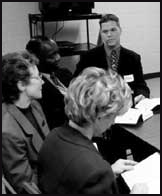 |
Other reasons cited for high costs were: lack of early detection of medical problems (the problems become serious and more expensive to treat).
|
"We need education
in healthy lifestyles. Most of our health issues involve diet (poor diet,
dental disease, heart disease, obesity, high blood pressure, etc.)."
— Seventh Day Adventist Church forum participant
"People who
are not satisfied with their doctors ... wait until after office hours and
go to the emergency room. We tie up a multi-million-dollar facility because
we don't like someone."
— Daviess County Farm Bureau forum participant
Citizens believe making the system more efficient, primarily for the poor, is the only justification for paying higher taxes or fees for health care.
"Health care issues of cost, access and quality are inherently complex. Tradeoffs and choices must be made."
— Participant in forum for human resources managers
"I believe
that everyone deserves some sort of health care whether they can pay or
not. Human life is too valuable to put a dollar sign on it!"
— Owensboro Community College nursing class forum participant
"Traveling
clinics in rural areas and low-income areas of town might be a big help."
—River Park Center volunteers forum participant
|
|
|
|
More than 90 percent of participants also favored
"We need more
... ways to obtain medications. Medicare needs to help pay."
— Precious Blood Church forum participant
Participants also suggested
|
|
|
|
Back to top (Table of Contents)
 |
After the high cost of health care and prescription drugs, citizens are most concerned about the number of people without primary care and prevention services, and they connect this to the local shortage of doctors, another of the access issues identified by the People's Health Project.
|
Citizens believe some people don't have (or want) a regular doctor because of:
Citizens described the implications of not having regular doctors as:
Citizens believe there is a shortage of doctors which they attribute to:
"If the doctor
is used to living in New York and comes here to Kentucky, they soon leave
because it isn't the same lifestyle they've been used to."
— Dugan Best Neighborhood Association forum participant
"We need a
medical community that recruits more of its own — not a closed competitive
system."
— Estes
Elementary forum participant
Despite data to the contrary, some local health care professionals disagree that there is a shortage of doctors. They claim that many teaching physicians and residents at state medical schools skew the data in other communities. Citizens overwhelmingly disagree. And physician spouses emphasized the workload of local doctors:
"Some doctors have not had a vacation in years."
— Small Business Owners forum participant
Citizens said the shortage results in:
"There are
perhaps too many chiefs and not enough Indians in the medical field - that
is, too many specialists and not enough doctors who act as primary care
physicians."
— Dugan Best Neighborhood Association forum participant
"A shortage
of psychiatrists and nurses must be considered in Daviess County."
— Owensboro Christian Church forum participant
"In our area
we have a large number of specialists. I personally go to a urologist, a
cardiologist, or an ear, nose and throat doctor instead of my internist
for those specific problems. So, the lower number of general practitioners
is probably a result rather than a cause."
— Henry Wilson Discussion Group forum participant
As solutions, more than 90 percent participants favored:
"It is important
for more people to see a physician on a somewhat regular schedule."
— Chamber of Commerce Young Professionals forum participant
|
More than 80 percent supported trying to convince doctors to accept more nonpaying patients and providing a tax deduction for doctors for this service (most favored these only if they did not require a tax or fee increase).
Participants also suggested:
in regard to making sure everyone has a regular doctor:
in regards to addressing the physician shortage:
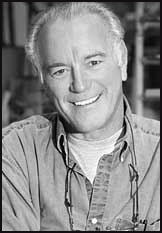 |
Citizens are deeply concerned about the many people who fall through the cracks of our health care delivery system. Many shared stories of family or friends who were denied coverage by a health plan, whose condition deteriorated while waiting for approval for treatment (from an insurance company or the federal government disability agency) or who are not taking their medications because of cost.
|
Citizens were most concerned about:
"Everyone needs
access to affordable care - not to have to beg or put food or drugs, one
in front of the other."
— Elizabeth Mundy Center forum participant
"Single parents
with fairly good income that do not receive child support make too much
money to qualify for assistance, but on the other hand, struggle to provide
medical and dental care for their family."
— Dugan Best Neighborhood Association forum participant
Citizens described other gaps that included:
"The lack of
mental health care for children is a real challenge. Insurance does not
cover much. Therein lies the problem — finding a provider willing to
work for nothing."
— Owensboro Mercy Health System board forum participant
As solutions, more than 90 percent of participants also favored:
"Doctors can't
continue to increase the charity care they give as more employers drop insurance
coverage."
— Health Insurance Professionals forum participant
Back to top (Table of Contents)
Citizens said the major inconvenience in the health care system is transportation.
Diabetics have trouble
using GRITS because "if you have to wait too long without eating,
there is a problem."
— Daviess County Farm Bureau forum participant
Many elderly riders need assistance from their front door, and GRITS vehicles pull up in the street.
Citizens said they are frustrated by filling out forms, approval processes, being shuffled from one doctor's office to another and long waits.
"Even though you have a doctor, they tell you to go to a convenient care place. ... When you go to convenient care, people get frustrated waiting for 2-3 hours."
— Dugan Best Neighborhood Association forum participant
As solutions, nearly half of participants said they would be willing to pay higher taxes or fees for:
Participants also suggested:
Back to top (Table of Contents)
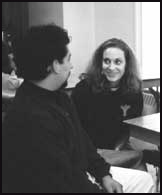 |
Citizens acknowledge that far too many people — providers and support staff as well as patients and families — do not always treat others with respect and courtesy. While participants rated it last in importance among the seven access issues, they shared many personal experiences where they felt they were not treated well by the medical system.
|
Participants had complaints about:
"I haven't
established a family physician yet. I moved here four years ago and the
ones I do call, the first question they ask is, 'Do you have insurance?'
which I do. It just rubs me wrong that that is their first concern. Not
'What do you need today?' The main concern is that you have insurance so
that they can be sure that they are going to get their money. That's the
feeling I get."
— Eastview Elementary School forum participant
"I wanted to pay
$10 per week on my bill but the doctor wouldn't work with me and told me
that wasn't enough."
— Estes Elementary School forum participant
"When you go
to the doctor, be sure to be well dressed. It makes a difference in how
they treat you. If you look like a slob, they treat you like a slob."
— Precious Blood Church forum participant
rude and inconsiderate patients. But physicians and office staff complained about rude, demanding patients as well and about the large number of patients who miss appointments.
"Biggest problem
that I see and hear from my friends —-doctors just don't listen!"
— Hospice forum participant
About 61 percent of participants said they favored taking steps to ensuring courtesy, respect and equal treatment for all if there were no costs associated with this.
|
|
|
|
Back to top (Table of Contents)
Exhibits
Survey Results
Forum
Participants' Ranking of the Most Important Health Care Access Issues Facing
Daviess County
(The issues were identified by an August 2000 Survey by the
University of Kentucky)
|
Issue
|
Very
Important %
|
Somewhat
Important %
|
Not
at All Important or Not Sure %
|
| 1. The high cost of prescription drugs |
90
|
9
|
—
|
| 2. The high cost of health care in general |
90
|
9
|
1
|
|
3. The large number of people without a regular doctor or a "medical home" |
72
|
26
|
2
|
| 4. Gaps in our health care system |
72
|
27
|
3
|
| 5. A shortage of doctors in Daviess County |
63
|
31
|
6
|
| 6. Inconvenience and intimidation in the health care system |
48
|
43
|
9
|
| 7. A general lack of fairness and courtesy in the health care system |
45
|
46
|
9
|
Back to top (Table of Contents)
Forum
Participants' Assessment of 16 Possible Strategies To Address Health Care Access
Issues
(The issues were identified by an August 2000 Survey by the
University of Kentucky)
|
Strategy
|
Favor%
|
Favor,
even if more taxes or higher hospital rates & fees are necessary %
|
Oppose % |
| Get people into health care programs they qualify for |
98
|
41
|
—
|
| Help Medicaid, Medicare, and uninsured patients fill out paperwork to get approval to see a doctor |
96
|
38
|
1
|
| Make sure doctors, clinics, hospitals, etc. do not over charge |
95
|
36
|
2
|
| Promote and support more and better health insurance plans offered by employers |
92
|
36
|
2
|
| Help patients find a regular doctor or a "medical home" |
94
|
33
|
3
|
| Expand transportation services to and from the doctor's office or hospital |
94
|
42
|
2
|
| Make it easier for doctors to distribute free prescriptins |
93
|
38
|
3
|
| Recruit more doctors to Daviess County |
92
|
35
|
3
|
| Do more to match health care needs with available doctors, clinics, hospital services, etc. |
92
|
46
|
4
|
| Take steps to ensure courtesy, respect and equal treatment for all |
90
|
29
|
3
|
| Have a doctor on a full-time basis work at existing clinics |
90
|
45
|
4
|
| Improve follow-up services after patients leave the emergency room |
88
|
39
|
8
|
| Provide a tax deduction for doctors who care for non-paying patients |
87
|
34
|
8
|
| Convince doctors to accept more non-paying patients |
83
|
30
|
6
|
| Establish new health care clinics in Daviess County |
82
|
40
|
8
|
| Use mobile health units for underserved neighborhoods & remote areas |
82
|
44
|
10
|
Back to top (Table of Contents)
Widespread participation. Fifty-two forums were held from March 2001 to February 2002; 1,147 people were personally invited to a forum, 578 participated, and 491 completed questionnaires.
Urban and rural representation. Of those who completed the questionnaires, nearly two-thirds of the participants (64 percent) lived in the city of Owensboro, 29 percent lived outside the city limits in Daviess County and 6 percent were from other areas.
Age and gender participation. Forum participants ranged in age from younger than 18 years of age to older than 65. Women made up 65 percent of participants; 35 percent were men. (Coincidentally, these are the same percentages that responded to the Health 2000 survey conducted by the University of Kentucky).
Back to top (Table of Contents)
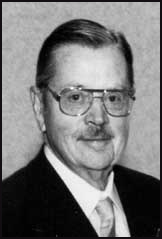 |
A project and report of this breadth requires the diligent work of many people. The Public Life Foundation of Owensboro is fortunate to have been able to put together an outstanding project. In particular I'd like to thank the following:
|
All these people contributed significantly to this project, but it succeeded in large part because of the leadership of Rodney Berry, PLFO president. Rodney attended virtually all the forums and moderated many of them. He helped design the study, collect the data, and write the report. Most importantly, Rodney has been tireless advocate for giving the people of Daviess County a voice in local health care decisions and debates. I offer my thanks to Rodney, the forums' participants and volunteers, and the team members who helped make this project and report possible.
John S. Hager Founder,
Public Life Foundation of Owensboro
Back to top (Table of Contents)
How the People's Health Project came about
Why health care access? In August 2000, the Public Life Foundation of Owensboro and more than 20 other sponsors released a comprehensive health needs assessment for Owensboro-Daviess County and the seven counties of the Green River Area Development District. The study, conducted by the University of Kentucky Center for Health Services Management and Research, included surveys, focus groups and telephone surveys of 1,800 citizens, each of whom was asked more than 90 questions about health and health care. Two major issues emerged as barriers to healthy citizens: access to health care and unhealthy lifestyles. Since several community organizations were already focusing on lifestyle issues, the Foundation targeted health care access.
From information to deliberation. The Foundation embraces a three-pronged process for community problem solving: information, deliberation, action. With new information from the UK study, the Foundation brought citizens together to deliberate in People's Health Project forums so they will be empowered to take action.
Easy-to-understand information. The UK study identified seven health care access issues. The Foundation presented these issues, themes and supporting data in easy-to-understand discussion guides for community forums.
Connecting with citizens. The Foundation developed an ambitious forum plan to attract citizens from all walks of life. Civic and service clubs, church groups, neighborhood associations, parent-teacher organizations, trade and professional associations and other groups hosted forums throughout Owensboro and Daviess County. Any group was welcome to participate, and all forums were open to the public.
Trained citizen leaders. The Foundation formed a citizens advisory committee which helped recruit moderators to lead the forums and recorders to take notes.
A chance to be heard. In each forum, participants were introduced to the latest information related to health access issues. They were asked to share personal or family experiences and circumstances. They told their stories.
Issues, options and strategies. Participants were then asked to discuss and rank the importance of various issues. They learned about opposing points of view. They shared ideas and explored possible community strategies.
Back to top (Table of Contents)
Health needs assessment (2000) Comprehensive University of Kentucky study stressed issues of unhealthy lifestyles and health care access.
Citizen voices (2001 -02) Public Life Foundation shared UK findings and facilitated citizen dialogue in 52 health care forums.
Attention to lifestyles (1990s - present) Healthy Horizons, OMHS HealthPark, Corporate Challenge, health fairs, screenings, school nurse program, Fit for Life school programs, and a planned Community Summit on Healthy Lifestyles point to a growing acknowledgement of the importance of behavior and personal responsibility in health care.
County government resolution (2001) A bold community goal is proclaimed by county leaders: 100% access and zero health disparities.
Examining models (2001) County judge-executive convened health care and community leaders to learn how other communities have improved access to quality care for all. A North Carolina model was introduced.
Federal grant, county tax for expanded public health facilities (2001) County government secured $2 million federal grant and the county health tax was increased to finance expanded public health facilities. Facilities will include space for a primary care clinic.
Prescription drug report (2001) Reacting to this citizen priority, the Public Life Foundation commissioned a prescription drug study, identifying resources and models from other communities.
McAuley Clinic partnership-pilot project (2001) Daviess County Fiscal Court, Green River Health, and OMHS formed a partnership to manage and monitor a free clinic staffed by a full-time physician, nurse practitioner, and caseworker.
Directories (2002) Responding to another need, the Public Life Foundation published directories to inform citizens of primary care and community health center resources.
Prescription drug and medical transportation task Forces (2002) The Public Life Foundation convened interested citizens, health care providers, and agency representatives to explore ways to work together to help more people with medications and transportation. Both groups are developing exciting collaborative models.
Citizens Health Care Advocates (2002) Concerned citizens who participated in Public Life Foundation forums have established an organization to work on behalf of the public interest in health care.
Robert Wood Johnson foundation grant A major grant proposal has been submitted by the Citizens Health Care Advocates to fund a four-year citizen-driven health access program.
Back to top (Table of Contents)
| Ken Adkisson
Marcy Allman Nelda Barnett Rodney Berry Vivian Craig Debbie Crone Bob Darling Susan Davis Marianne Smith Edge |
Jeff Jones Ralph Kunze Ron Mayhew Kathy Olson Sister Rose Jean Powers Dale Taylor Lisa Townsend Lisa Tullis Virginia York |
Back to top (Table of Contents)
| Harold
Baggett David Bell Jay Burns Bruce Chisholm Chuck Conkright Diane Coomes Don Crask Janet Dillehay Jerry Dockery Sue Jarvis Steve Kulka Rosemary Lawson Robyn Mattingly Steve McFarland Orlander Mitchell |
Mark Moseley Bill Moss Elizabeth Pendley Ethan Price Patti Rayburn Mary Shacklett Dan Spalding Roy Stone Elnor Thielen Trish Todd Gayle Welsh Sister Fran Wilhelm Percy Wilkerson Estell Young |
Back to top (Table of Contents)
|
People's Health Project Recorders |
|
| Ruth
Baird Marian Bennett Sandy Hallman Sherry Hayden Nancy Kamuf Beverly Mills |
Anne
North Patti Ogles Branda Parker Patti Rhodes Cindy Shaver Michelle Wright |
Back to top (Table of Contents)
|
Audubon
Area Community Services |
RiverPark
Center |
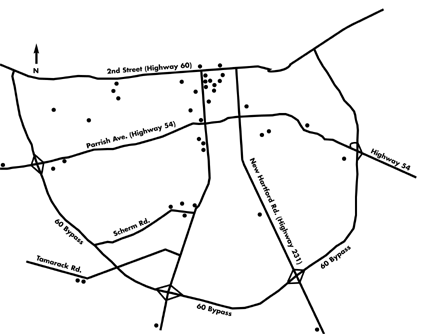 |
|